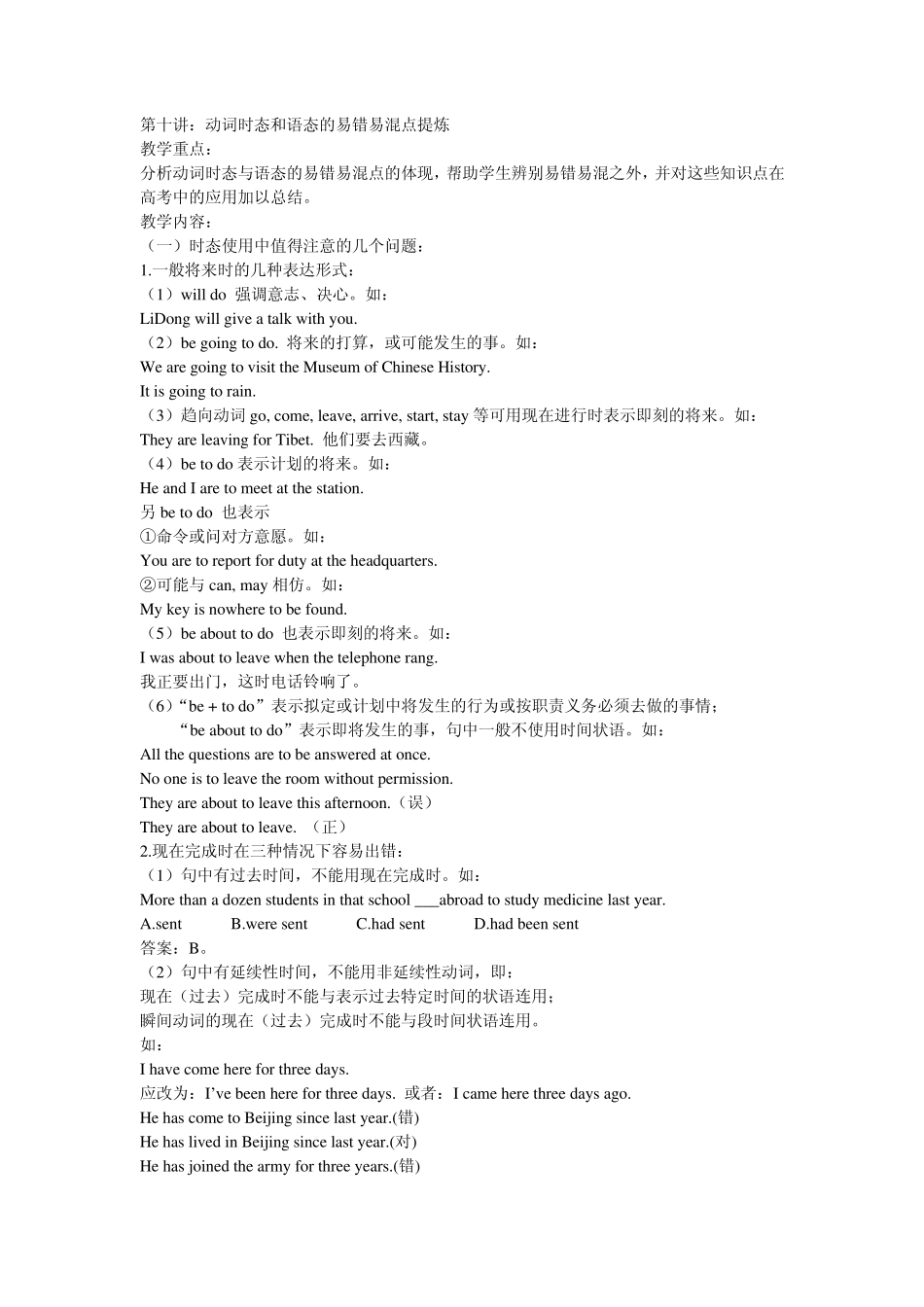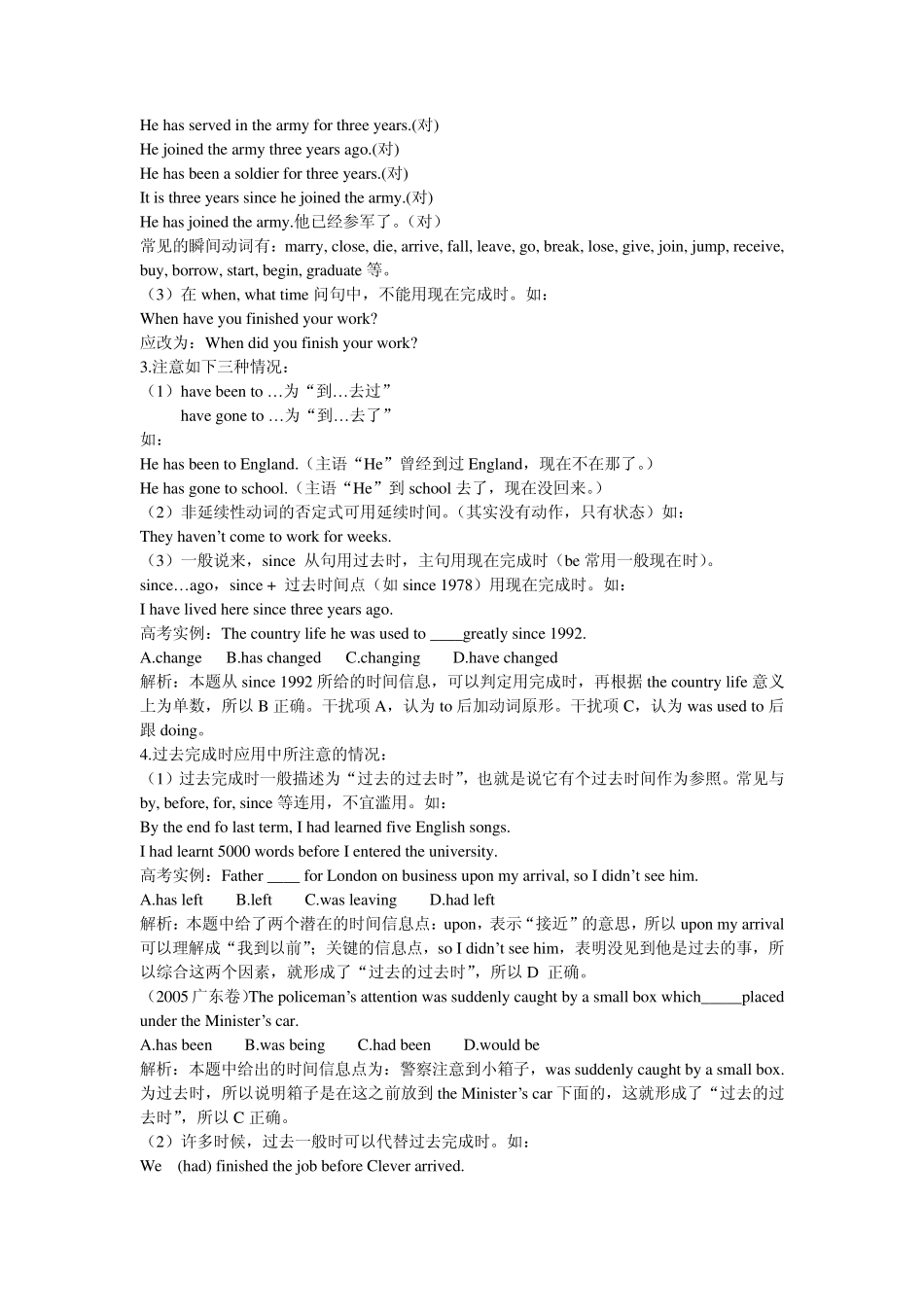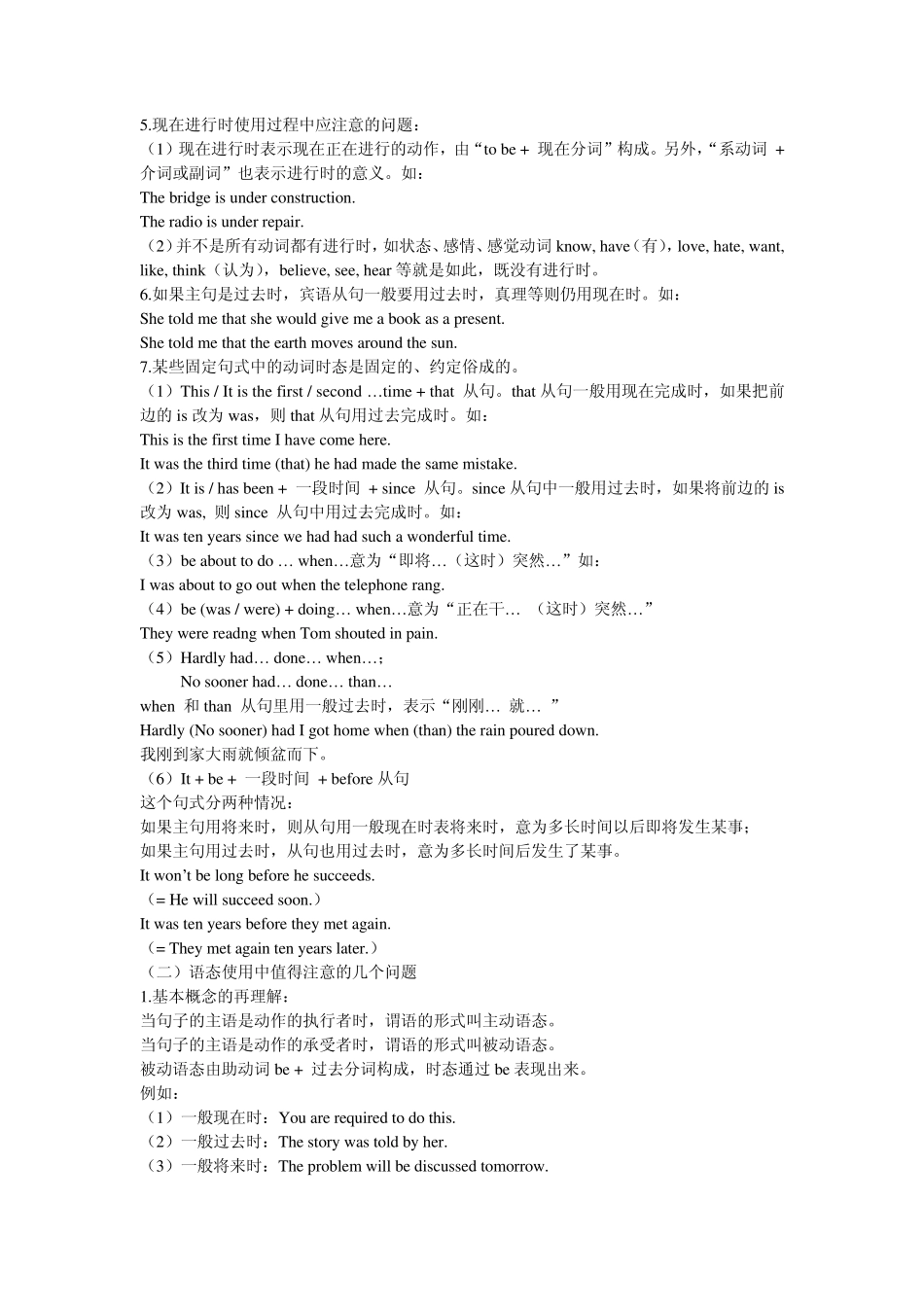第十讲:动词时态和语态的易错易混点提炼 教学重点: 分析动词时态与语态的易错易混点的体现,帮助学生辨别易错易混之外,并对这些知识点在高考中的应用加以总结。 教学内容: (一)时态使用中值得注意的几个问题: 1.一般将来时的几种表达形式: (1)will do 强调意志、决心。如: LiDong will give a talk with you. (2)be going to do. 将来的打算,或可能发生的事。如: We are going to visit the Museum of Chinese History. It is going to rain. (3)趋向动词go, come, leave, arrive, start, stay 等可用现在进行时表示即刻的将来。如: They are leaving for Tibet. 他们要去西藏。 (4)be to do 表示计划的将来。如: He and I are to meet at the station. 另be to do 也表示 ①命令或问对方意愿。如: You are to report for duty at the headquarters. ②可能与can, may 相仿。如: My key is nowhere to be found. (5)be about to do 也表示即刻的将来。如: I was about to leave when the telephone rang. 我正要出门,这时电话铃响了。 (6)“be + to do”表示拟定或计划中将发生的行为或按职责义务必须去做的事情; “be about to do”表示即将发生的事,句中一般不使用时间状语。如: All the questions are to be answered at once. No one is to leave the room without permission. They are about to leave this afternoon.(误) They are about to leave. (正) 2.现在完成时在三种情况下容易出错: (1)句中有过去时间,不能用现在完成时。如: More than a dozen students in that school ___abroad to study medicine last year. A.sent B.were sent C.had sent D.had been sent 答案:B。 (2)句中有延续性时间,不能用非延续性动词,即: 现在(过去)完成时不能与表示过去特定时间的状语连用; 瞬间动词的现在(过去)完成时不能与段时间状语连用。 如: I have come here for three days. 应改为:I’ve been here for three days. 或者:I came here three days ago. He has come to Beijing since last year.(错) He has lived in Beijing since last year.(对) He has joined...


